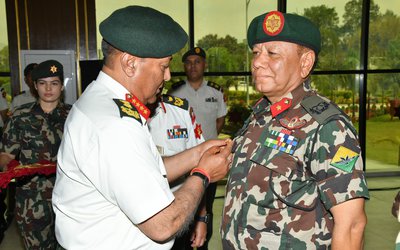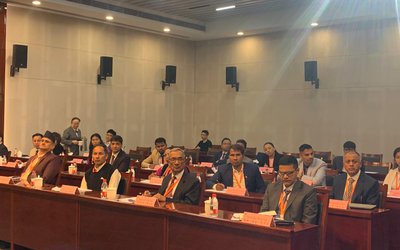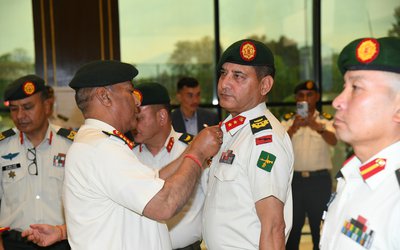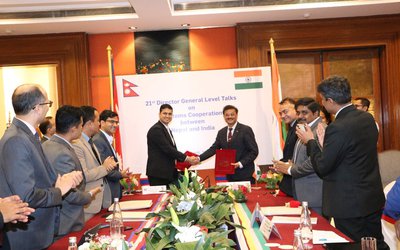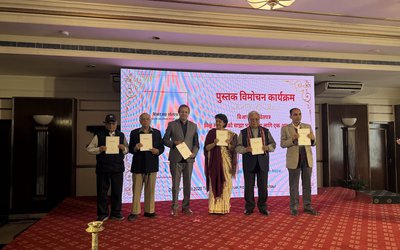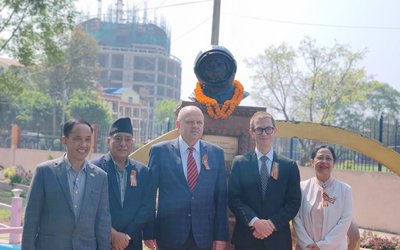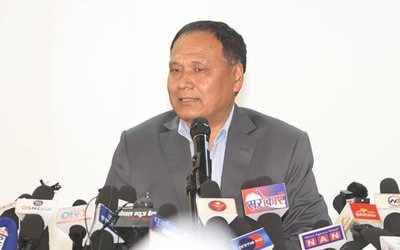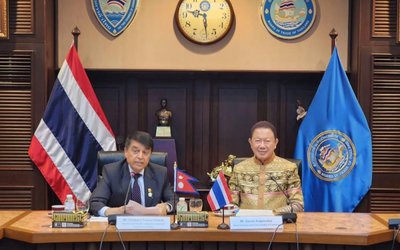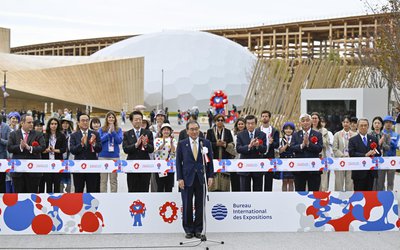
For over the last half century, the contribution of Nepal Army in UN Peacekeeping has been immense. With their commitment and professional capability, Nepal Army’s contingents are regarded as the best peacekeepers.
The army also shares the goodwill secured by UN peacekeeping. Although it took almost a decade to receive the medial, it is a matter of pride for Nepal Army’s generals, officers and other personnel to see their contributions in the UN Peacekeeping recognized.
As Nobel Peace Prize Committee awarded UN Peacekeeping the Nobel Peace Prize in 1988, all those who served in UN Peacekeeping from 1958-1998 were declared eligible for the award.
After several years of joint efforts of various government ministries and Nepal Army, 11332 army generals, officers and other rank files received International Peace Prize Medal.
Chief of the Army Staffs (COAS) General Rajendra Chhetri delivered this amid a special function. Nepal Army joined UN Peacekeeping in 1958 under Observer Group in Lebanon. In 1975, Nepal Army also joined UN Peacekeepers in Sainai in Egypt. From 1978 to 1988, Nepal Army continued to be a part of United Nations Interim Force in Lebanon, UNIFIL in Lebanon.
Under a cabinet decision of May 27, 2018, 555 Lieutenant Generals and officers and 10, 77 7 other personnel of different ranks secured International Peace Prize Medal. Altogether 11,332 received the medal. The medal is recognized by the government of Nepal.
Although several people have played their role to bring the medal to Nepali Army, former defense minister Bhim Rawal was instrumental to take the final decision. COAS General Gaurav Sumsher Rana (Retired) reportedly took the initial steps. Current COAS General Chhetri made the final attempt. According to Nepal Army sources, foreign secretary Shanker Das Bairagi also played an important supportive role to distribute this medal to Nepali Army’s Peacekeepers. Similarly, ambassador of Norway to Nepal Kjell Pettersen played a main role facilitating for medal.
Among senior most generals who served in the period include COAS General Arjun Narshing Rana. Various senior officers also served as Force Commander in UN Peacekeeping.
Among retired Lieutenant Generals, KNS Thapa, Victory Rana, Balananda Sharma, CB Gurung served Force Commander in UN Peace Keeping. Lieutenant General Purna Chandra Thapa also served as Force Commander.
Among others Lt Gen Chitra Bahadur Gurung presently retired in his capacity as Deputy Military adviser, officiated as Military adviser over a period of over 6 months at the Department of Peacekeeping at the UN HQ in New York. That’s the highest post any military officer has held from Nepal.
As per the deadline set by Nobel Prize committee, the prize was awarded to those Nepal Army Generals, Officers and other ranks who served UN Peacekeeping from 1958 to 1988. The replica of the medal was made by Nepal Army.
“Towards the end of the Cold War, the Nobel Committee wished to indicate that the United Nations ought to have greater influence on international politics. It did so by awarding the Peace Prize to military personnel who had served as observers and UN soldiers. From 1948 to 1988, over 500,000 persons from 53 states took part in the UN's peacekeeping operations. Of them, 733 lost their lives,” writes Nobel Peace Committee.
Up to 1988, the world organization had sent peacekeeping forces to the Middle East, Kashmir, Cyprus, the Congo, and West New Guinea. The units were under the command of the UN Secretary-General, and were made available voluntarily by member countries. With the exception of the forces that were sent to the Congo, the troops were equipped with light arms for self-defense. Their main assignments were to report on the situation in crisis areas, set up buffer zones, keep up contacts between conflicting parties, monitor armistice agreements, maintain calm and good order, and give humanitarian aid.”
- NEPAL-THAILAND: Joint Business Council
- Apr 13, 2025
- BIMSTEC SUMMIT: Nepal’s Stand
- Apr 11, 2025
- IME GROUP: Expands Into Paper Industry
- Mar 24, 2025
- CPN UML: Instigated By India
- Mar 23, 2025
- ADB’S CHIEF ECONOMIST: Nepal Reduces Poverty
- Mar 11, 2025
